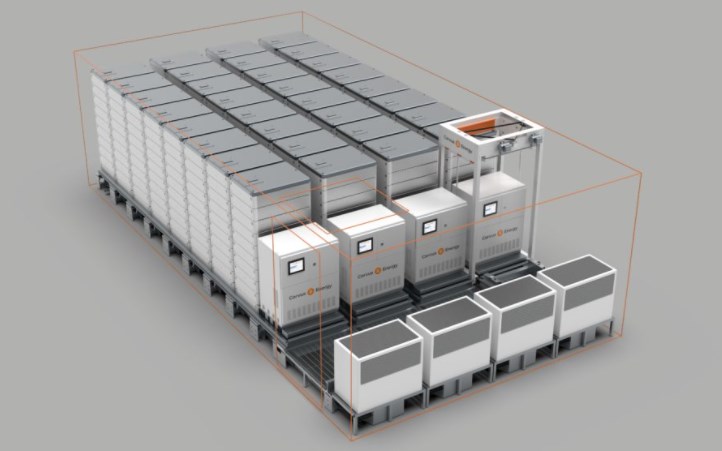Seaspan Ferries Corp. will start using state-of-the-art battery power for West Coast cargo vessels as part of a multimillion-dollar collaboration aimed at reducing emissions.
The initiative, announced February 17, is part of three new projects with a total value of $12 million from sa国际传媒’s Ocean Supercluster (COS), a cross-sectoral collaboration focused on accelerating marine innovation, and its Accelerated Ocean Solutions Program stream.
“It’s on our ocean where some of the biggest opportunities to address climate change and generate economic value exist,” COS CEO Kendra MacDonald said.
The Seaspan work is part of the Field Validation of Energy Storage System Project, led by Richmond’s Corvus Energy with partners Seaspan Ferries, VARD Marine, BC Hydro and the University of British Columbia.
The partners will conduct a commercial study and field trial of the new Corvus battery technology that will support the development of the system and bring it to market.
“We call this new battery system Blue Whale, because it will be deployed with massive energy storage capacity to allow longer durations of zero-emission operation,” Corvus executive vice-president Sean Puchalski said.
sa国际传媒’s Ocean Supercluster will provide $2 million for the project; another $2.15 million in funding will come from the project’s industry partners.
“This newest Ocean Supercluster project is led from sa国际传媒 with a total value of more than $4 million and will answer the call for viable solutions to electrify larger marine vessels,” MacDonald said.
She added that the project will create 23 jobs and has the potential to generate another 115 over its lifetime.
Corvus said the Blue Whale system is designed for large ships with high zero-emission energy demand, such as cruise ships, large Ro-Pax and Ro-Ro ferries and cargo ships.
For its inaugural field trial, the Blue Whale battery system will be installed on board the Seaspan Reliant, a roll-on/roll-off drop-trailer cargo ferry built in 2016. The ship services sa国际传媒’s Lower Mainland and Vancouver Island.
“Seaspan Ferries is committed to caring for the environment, and this is an exciting opportunity to play a role in the transformation of shipping towards a greener and more sustainable industry,” said Seaspan Ferries vice -president Gord Miller.
“This trial will also provide valuable experience locally, as personnel from VARD Marine, BC Hydro and the University of British Columbia will provide integration design, shore charging from the grid infrastructure, and emissions reduction studies respectively – all important areas of expertise to develop as British Columbia develops its coastal emissions reduction plans.”
The Blue Whale field trial and all key maritime authority certifications are expected to be completed by the spring of 2022, at which time commercial deliveries will start.
@jhainswo



